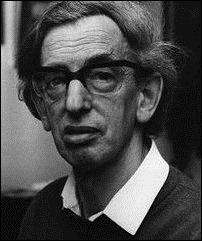Eric Hobsbawm, one of the most prominent British historians of this century and the last, passed away at the age of 95 at London this Monday. Hobsbawm, who specialized in the history of industrial revolution in the West and the emergence of modern societies in Europe, underscored in his works the crucial role that popular culture played in the evolution of history. Besides influential works on historical epochs in modernity and the study of history as a discipline, Hobsbawm has also written extensively on the subject of nations and nationalism. Till his death, despite his loss of faith in the Soviet/Chinese model of socialism, he remained convinced that the current model of capitalist globalization was against the interests of humanity, writes RM Karthick, research scholar at a British university.
Full text of the article by Mr RM Karthick, currently a research scholar in political theory at the University of Essex, UK, follows:
 One of Hobsbawm’s major contributions on the subject of nationalism is the concept of ‘invented traditions’, which was made popular through the book ‘The Invention of Tradition’, published in 1993, which he edited along with Terence Ranger.
One of Hobsbawm’s major contributions on the subject of nationalism is the concept of ‘invented traditions’, which was made popular through the book ‘The Invention of Tradition’, published in 1993, which he edited along with Terence Ranger.
In his introduction to the book, Hobsbawm argues that ‘invented tradition’ “is taken to mean a set of practices, normally governed by overtly or tacitly accepted rules… which seek to inculcate certain values and norms of behaviour by repetition, which automatically implies continuity with the past. In fact, where possible, they normally attempt to establish continuity with a suitable historical past.”
This work of Hobsbawm provides theoretical framework for understanding the role of tradition in the Sri Lankan state’s oppression of the Eezham Tamils and the latter’s resistance to the same.
In the modern age, both resistance movements and oppressor regimes make use of traditions to not just legitimize their claims, but also to garner popular support for their political objectives.
The Sinhala state’s genocidal policy of forcible assimilation of the Eezham Tamils as a whole combined with annihilation of parts, draws from Sri Lankan nationalism’s creation of myths that the entire island belongs primarily to the Sinhalese.
The Eezham Tamils’ resistance to this policy and their struggle to retrieve their lost sovereignty, especially during the phase of armed struggle, also invoked traditions that marked them out as a distinct nation. Likewise, those traditions and cultural norms were upheld that would facilitate the creation of an egalitarian society in the future.
As a testimonial to this, in her recently released book, N. Malathy writes that “Impressive social changes occurred in the Vanni under LTTE. What Gandhi, Ambedkhar, and Periyaar failed to achieve in India, the LTTE achieved in Vanni. The pervasive caste-consciousness of South Asia was eliminated. Vanni held the promise of progressive ideals for women in the society and of a government oriented toward the well being of the people. Infusing people with the spirit of struggle, it united them as one people. Indeed, it held the promise for many more social changes that would have benefited Tamils and perhaps even the whole of South Asia.”
After the internationally abetted genocidal war against the liberation movement of the Eezham Tamils, the Sri Lankan state is in the need for destroying the Tamils’ invented traditions and for inventing its traditions to present to the world the claim of its historical unitariness.
This invention of Sri Lankan/Sinhala tradition in the island happens, however, as a process of genocide with the denial of Eezham Tamil history. Buddhist statues are erected in areas in the Tamil homeland where no Buddhists live. Tamil historical artefacts are stolen or destroyed. Corresponding to this, the Sri Lankan state’s archaeological department, which is fully Sinhalese, and mainstream Sri Lankan historians generate a history of unbroken unitariness of the island’s political and cultural history, very often obliterating the existence of Tamil sovereigns.
Likewise, new traditions are sought to be imposed in the military occupied Tamil homeland to legitimize Sinhalization and delegitimize the traditions that emerged during Eezham Tamils’ struggle for independence.
While the Eezham Tamils in the island are physically coerced into staying away from the traditions of the liberation struggle, the International Community of Establishments ideologically coerce the diaspora Tamils to disown those traditions or to distort them.
In his book “Globalisation, Democracy and Terrorism” published in 2007, Hobsbawm contends that that the so-called threat of terrorism is used an excuse to justify extreme repressive measures taken by states, arguing that the latter is more dangerous than the phenomenon of terrorism itself.
Eezham Tamils were witness and victims to the international manoeuvres by world powers to delegitimize their struggle as terrorism, tilting the balance in favour of the genocidal offensives of the Sri Lankan state.
While Hobsbawm’s contributions are primarily West-centric, as analyses and critique of Western models of political economy and culture based on the same, they nevertheless provide theoretical frameworks which can furnish some good arguments to Tamil scholars to look at concepts of Tamil nation, nationalism, and the emergence of sovereign states in the era of globalisation.
(For updates you can share with your friends, follow TNN on Facebook and Twitter )
